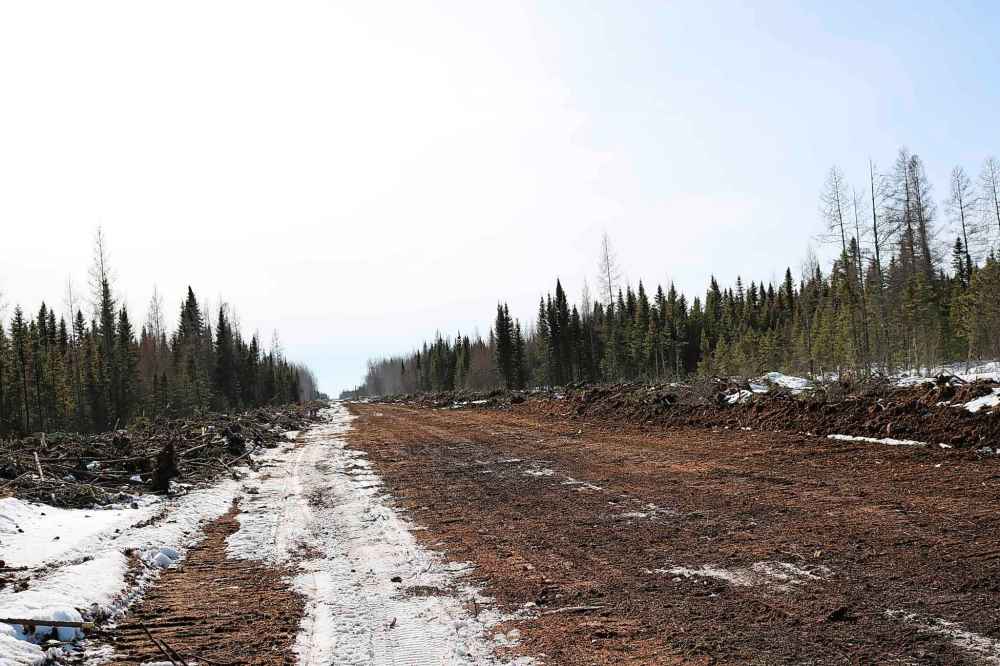Area First Nations seek to stop work on Lake St. Martin channel, start consultations with province
Advertisement
Read this article for free:
or
Already have an account? Log in here »
To continue reading, please subscribe:
Monthly Digital Subscription
$0 for the first 4 weeks*
- Enjoy unlimited reading on winnipegfreepress.com
- Read the E-Edition, our digital replica newspaper
- Access News Break, our award-winning app
- Play interactive puzzles
*No charge for 4 weeks then price increases to the regular rate of $19.00 plus GST every four weeks. Offer available to new and qualified returning subscribers only. Cancel any time.
Monthly Digital Subscription
$4.75/week*
- Enjoy unlimited reading on winnipegfreepress.com
- Read the E-Edition, our digital replica newspaper
- Access News Break, our award-winning app
- Play interactive puzzles
*Billed as $19 plus GST every four weeks. Cancel any time.
To continue reading, please subscribe:
Add Free Press access to your Brandon Sun subscription for only an additional
$1 for the first 4 weeks*
*Your next subscription payment will increase by $1.00 and you will be charged $16.99 plus GST for four weeks. After four weeks, your payment will increase to $23.99 plus GST every four weeks.
Read unlimited articles for free today:
or
Already have an account? Log in here »
Hey there, time traveller!
This article was published 14/06/2019 (2371 days ago), so information in it may no longer be current.
Lake Manitoba First Nation says, in the absence of any real consultations, it will not support construction of permanent channels connecting Lake Manitoba, Lake St. Martin and Lake Winnipeg.
Chief Cornell McLean said the planned channel won’t even protect his community and others from future floods.
Affected communities called out the province after spotting work crews on the site in April, as some vegetation-clearing has already begun. The proposed structures would build on an emergency channel cut to divert water through Lake St. Martin to handle severe flooding in 2011.

“We took the hit for the city of Winnipeg, the man-made flood,” said McLean. “We took it. We’re not saying we’re not willing to help, we are willing to help. But come to the table and negotiate with us. Fix the past wrongs.”
Unlike four area First Nations affected by flooding in 2011, Lake Manitoba said it hasn’t received the type of compensation that built new houses in other communities. It was also not part of a $90-million class-action lawsuit resulting in payments to residents of Lake St. Martin, Pinaymootang, Little Saskatchewan and Dauphin River First Nations.
“It’s not to say I’m not happy for the other communities; I am,” McLean said. “They did receive housing and various other things for that flood of 2011, but we didn’t receive (anything) for Lake Manitoba. And we’re on the shore, we were the first ones (hit by flooding).”
The province said Lake Manitoba First Nation did receive disaster funding, but couldn’t specify what for.
McLean is also chairman of the Interlake Regional Tribal Council, which again this week — with the support of the Assembly of First Nations — publicly called on the province to stop any work and focus on consultations.
He said a traditional land use study — required for an environmental assessment — has not been completed, but expects it would show the area has a rich variety of uses for Indigenous communities, from hunting and fishing to a place to find traditional medicines.
McLean said he had a meeting with Minister of Indigenous and Northern Relations Eileen Clarke and Minister of Infrastructure Ron Schuler two weeks ago, but called it “lip-service.” Lake Manitoba is asking for support for housing and infrastructure to rebuild from the flood eight years ago, such as lights along Highway 68 to make it safer.
Meanwhile, the Canadian Environmental Agency website states the environmental assessment has not been completed on the channels proposal, and “proceeding with any aspect of a designated project” could result in a fine of $100,000 to 400,000.
A provincial infrastructure spokesman said the vegetation clearing that’s taken place is not construction.

“Robust engagement and consultation for the project is ongoing and being led by Manitoba Infrastructure,” David von Meyenfeldt said in an emailed statement. “To be clear: construction on the outlet channels project has not begun, due to the lengthy and complex regulatory approval process imposed by the federal government.”
Indigenous Services Canada confirmed this week no compensation is in the works for Lake Manitoba for the 2011 flood, nor the flooding of five houses in 2014.
“However, ISC continues to work closely with the community to ensure it is protected from flooding,” spokeswoman Rola Tfaili said in an emailed statement.
The federal government contributed $15.4 million in 2011 for a clay dike and another $2.1 million — not including provincial funding — to make the dike permanent and improve drainage in the area, she said.
tvanderhart@freepress.mb.ca
Twitter: @tessavanderhart
History
Updated on Friday, June 14, 2019 7:29 PM CDT: Adds photo


